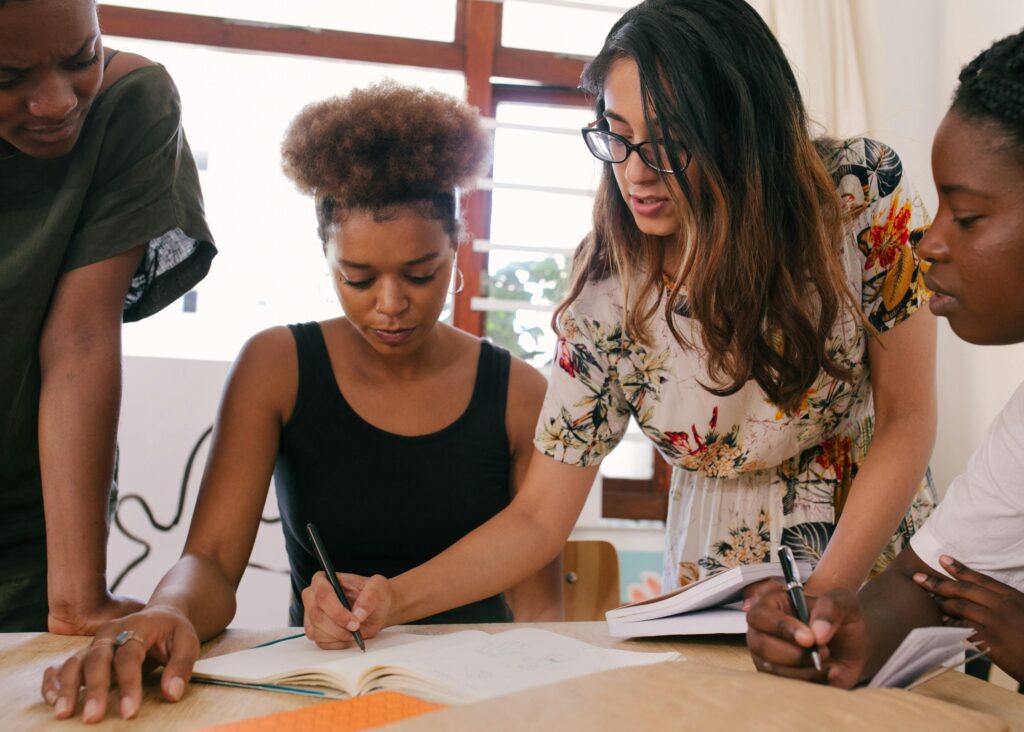
Diversity, equity and inclusion are three words that for decades have meant empowering a conscientious society to accept and appreciate those different from them. Amalgamated into the acronym “DEI,” the term has transformed into a red-hot fire poker, spurring passionate ambushes against progressive workplace ideals.
Countless DEI programs are folding under the pressure, while those that hold fast face difficulties in demonstrating their effectiveness. As the chaos mounts, it is crucial for corporate and nonprofit DEI efforts to identify gaps that hamper progress.
Mentorship is the knight in shining armor for a struggling DEI program. Company-wide DEI initiatives should focus on strengthening mentorship programs to create a solid foundation for guidance, representation and advocacy that empowers employees and drives meaningful business outcomes.
What is a DEI gap?
Cast aside the preponderant negative talking points concerning DEI. They do little to get at the heart of the real issues facing these programs, such as:
- Bias: Many DEI programs struggle to overcome biases, which can hamper a company’s efforts across its entire business. Bias prevents underrepresented groups from receiving a fair shake at the recruitment process. Some studies have shown that bias leads to unhelpful performance reviews for minorities. And the resulting inequity often leads to employee disengagement and apathy, complicating talent retention.
- Quotas: In the search for quick wins, DEI efforts often point to filled quotas as proof of a functioning program. Filling quotas without intention, treating DEI hires as nothing more than numbers, leads to underrepresented employees being present without feeling genuinely included or valued.
- Lack of comprehensive inclusion: Minority populations dot the entire spectrum of race, sex, socioeconomic status, and disability. DEI programs sometimes focus primarily on one or two of these populations. But choosing to de-prioritize intersectionality only leads to further inefficiencies and makes a DEI program seem disingenuous to its underrepresented employees.
These problems and others are genuinely difficult to address for one big reason: it is hard to even identify that they exist. Bias is inherent to all people, quotas seem quite rational on the surface, and a lack of comprehensive inclusion still involves plenty of inclusion.
This is why mentorship programs are so important to addressing the problems. Through their very existence, mentorship programs work to address all of these concerns.
How mentorship can help close the gap
Mentorship programs have several qualities that allow them to fill gaps in DEI programs.
All-natural inclusion
Consider this study from researchers at Vanderbilt University that found students from underrepresented populations who attended a mentorship workshop saw significant improvements in information, preparedness and confidence when applying to graduate school.
The researchers concluded that a proper mentoring program goes hand in hand with DEI principles, especially when mentorship is focused on on underrepresented groups. Mentoring by nature can help minority groups feel empowered, without the need for quotas or guidelines.
Psychological safety
Despite the best efforts of DEI programs, many underrepresented people still do not feel at home at their place of work. DEI initiatives can fill all the quotas they want, but that won’t necessarily change how employees feel when they come to work every day. An employee that feels unsafe will not contribute optimally to a company’s goals.

Amy Edmondson of Harvard University found that teams with high psychological safety report 12% higher productivity and are six times more likely to innovate. Studies from Accenture found psychologically safe environments led to 76% more engagement, a 27% reduction in turnover, 50% more productivity, and 57% of workers feeling they were more likely to collaborate.
Mentorship programs aim to foster inclusive and supportive work environments, which in turn lead to employees who feel more psychologically safe. If employee safety and comfort is a key to a productive workplace, then mentorship programs are the way forward. Good mentorship is about developing relationships and breeding success – not about filling quotas.
A psychologically safe environment also allays general concerns about bias, because the mentees through these relationships will make it known whether or not they feel valued.
Bias mitigation
DEI programs can easily fall victim to bias and create an isolating environment without even realizing it. Mentorship programs are similarly vulnerable, to be sure, but a well-structured mentorship program inherently possesses the tools to overcome these issues. Importantly, such a program provides access to developmental relationships.
These relationships are the backbone of any mentorship program. Workplaces often unconsciously give preferential treatment to employees who most reflect leadership’s background, but mentorship programs help to avoid this pitfall. A good mentor-mentee relationship can lead to a lifetime of connections that help participants find a job while also giving them greater control over all aspects of their professional life, alleviating bias.
Employees who are victimized by bias, whether that bias is conscious or unintended, can quickly be swallowed by imposter syndrome, feeling as though their accomplishments are not worthwhile despite all evidence to the contrary. A mentorship program can ensure that imposter syndrome never takes root, promoting belonging and strengthening one of the core tenets of DEI.
Ensuring success through intention

DEI programs have gaps that mentorship programs can help fill. Biases can be overcome, inclusion can be prioritized, and employees can be both safe and productive.
Seems simple! Time to plug and play.
….Okay, not so fast. No mentorship program solved problems without hard work behind the scenes. All programs need serious intent to see success. Intent is an ongoing priority and should be top of mind at all times when running a mentorship program.
To structure a mentorship program around intent, it is important to focus on three things: Purpose, accountability, and measurement.
Purpose
Choose a goal before starting the program, and fight to reach it. A directionless program is an ineffective program. Only a mentorship program with clear goals and a clear purpose can fill the gaps of an ailing DEI initiative. Additionally, it is critical to include in the plan a statement connecting the mentorship program to DEI efforts. Intentionally combining the two ideas makes it tangible and actionable.
Accountability
Programs often fail because there is no mechanism to ensure the proper compliance of its participants. An intentional focus on accountability ensures that no mentorship program will flag for too long, and will strengthen the stated connections between mentorship and DEI. Mentors and mentees should feel empowered to speak up about how they feel about the program’s direction. Accountability improves productivity and makes goals more attainable. Again, this must be done with intention.
Measurement
Collect data. Measurement is one of the most important parts of any mentorship success story, and can also fill in the DEI gap. Conduct surveys to determine how mentors and mentees feel about their time in the program, and to understand their positive or negative feelings about how the program fosters inclusion. Other more quantitative measurements can also help: measuring retention rates, career advancement and engagement can provide crucial insight into a program’s successes while also shining a light on how it impacts DEI efforts.
DEI and mentorship are connected at the hip
Mentorship isn’t just a helpful addition to DEI initiatives. In many ways, it’s the missing link. While DEI programs often falter under the weight of vague goals, bias, and performative efforts, mentorship offers a tangible, relationship-driven pathway toward real progress. It builds trust, promotes equity, and gives underrepresented employees the tools and confidence to thrive and grow in the workplace.
DEI needs mentorship not just to survive, but to finally do what it was always meant to: empower everyone.
